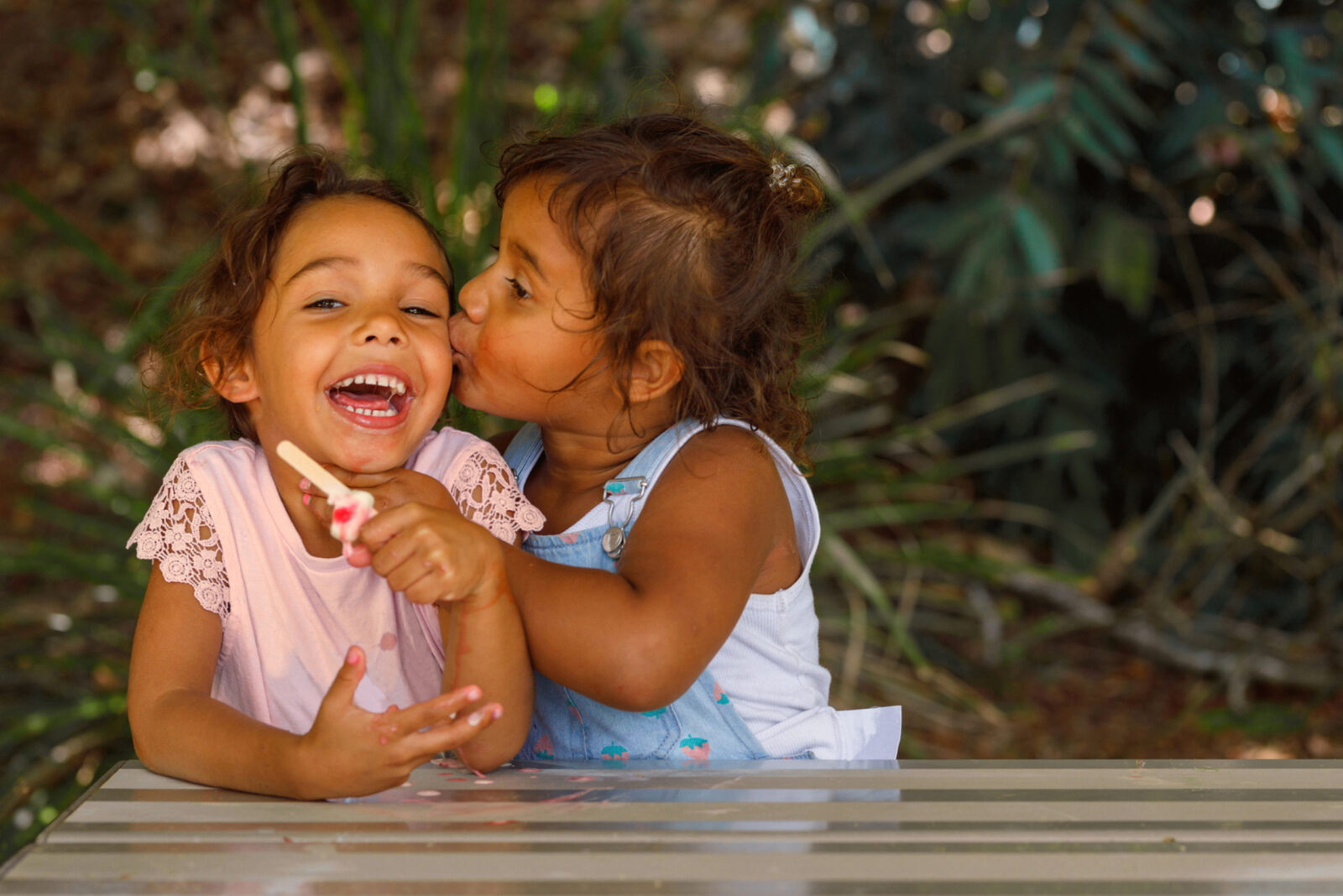It’s important for First Nations Children in out of home care to maintain contact with their families and cultural community. This is essential for their identity formation and lifelong achievements.
The Aboriginal Child Placement Principle
The central principle that underpins child welfare placements for Indigenous Australian children and their families is the Aboriginal Child Placement Principle. This principle has been incorporated into legislation across all Australian states and territories, and outlines the preferred order of placement for Aboriginal or Torres Strait Islander children who’ve been placed in out of home care. The order of preference is that children be placed with:
- Their extended family
- Their Indigenous community
- Other First Nations People
- Non-Indigenous families.
The United Nations Convention on the Rights of the Child (United Nations, 1989, Article 30), states that a child “…who is Indigenous shall not be denied the right, in community or with other members of his or her group, to enjoy his or her own culture, to profess and practice his or her own religion, or to use his or her own language.”
This stipulation contributes to the realisation of other rights relating to identity formation and the promotion of the child’s social, spiritual and moral wellbeing, and physical and mental health. Unfortunately, however, in out of home care in Australia, these aspirations aren’t always met.
The Cultural Home Awareness form
Anglicare Southern Queensland has established a Cultural Home Awareness Form for carers to complete with an Anglicare Cultural Support Worker. This process encourages carers to purchase or acquire cultural items which identifies a young person in care to their First Nations heritage. It encourages the carer and young person to engage with their First Nations community through traditional activities that support their cultural identity.
These activities include:
- participation in community events
- attending an Aboriginal and Torres Strait Islander Medical Centre for a health check
- getting to know the local Aboriginal and Torres Strait Island community
- contacting local Aboriginal and Torres Strait Islander community organisations
- signing up to receive community emails and other forms of communication updates
- having regular conversations with the young person
- identifying Aboriginal and Torres Strait Islander Elders
- cultural awareness and volunteering
- visiting museums like the Yugambeh Museum
- acquiring a Map of Aboriginal Australia
- knowing the Traditional Country you live on
- adding local community events to the national Aboriginal and Torres Strait Islander cultural calendar received from their Cultural Support Worker
- understanding the difference between Acknowledgement to Country and Welcome to Country.
In addition to the above, other ways that carers and young people can build awareness and get involved is by joining their local library or visiting the State Library for resources on Aboriginal and Torres Strait Islander stories and being informed on events and activities.
All First Nations People are Traditional Owners
NOT
All First Nations People know their Traditional Country.
